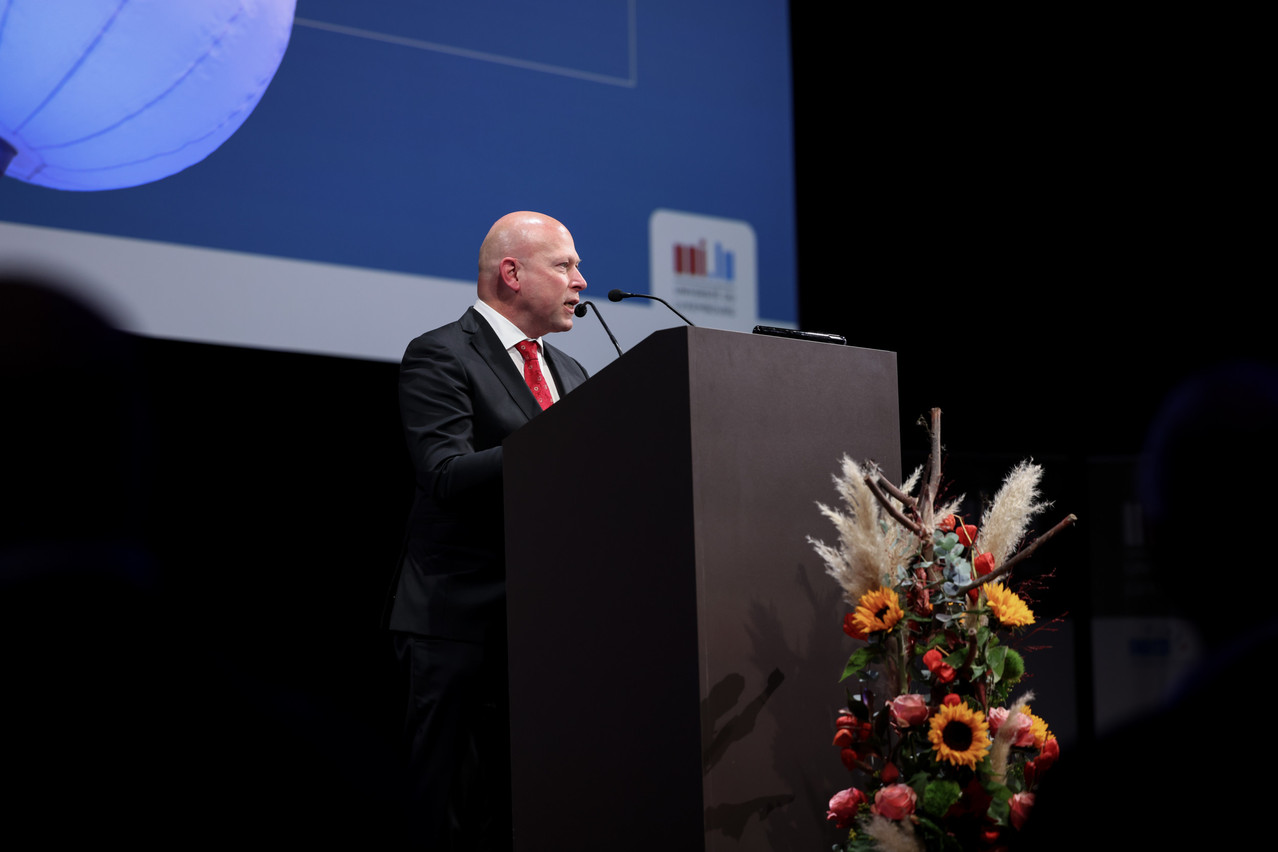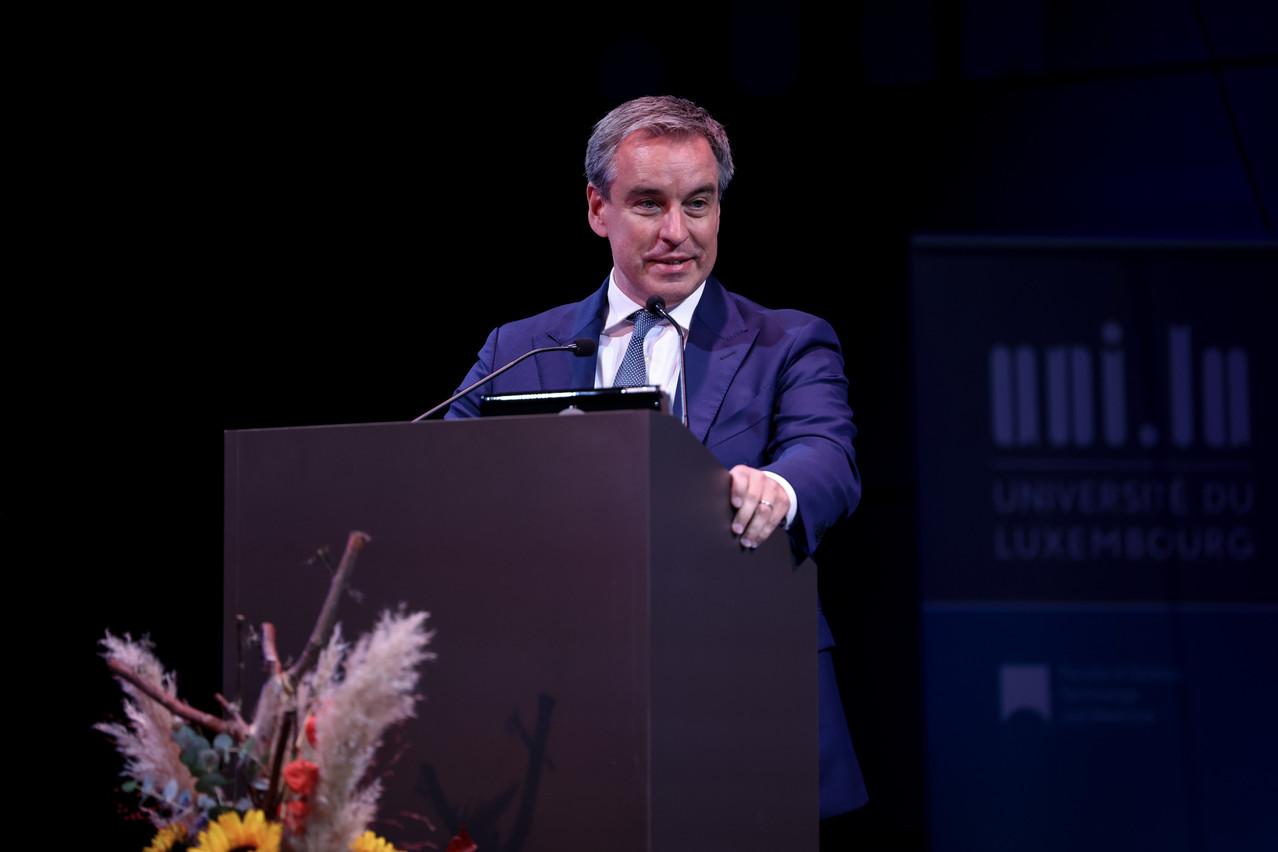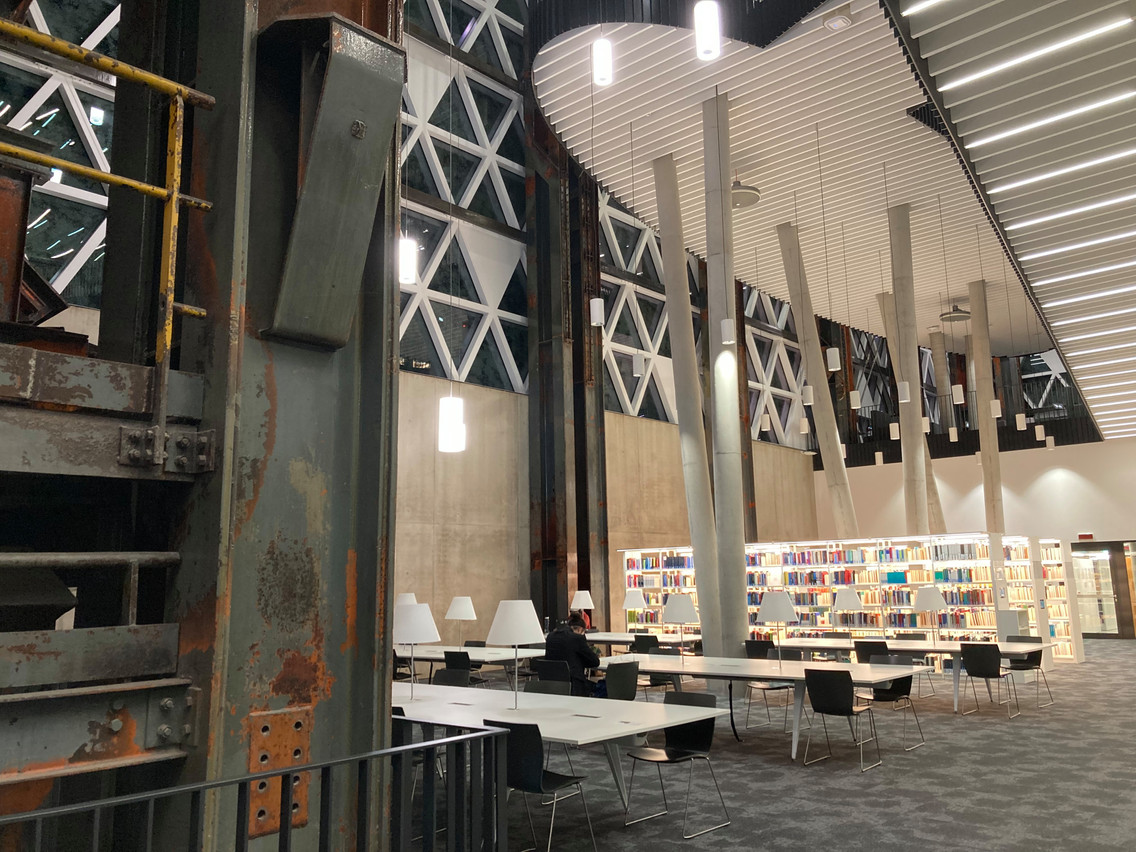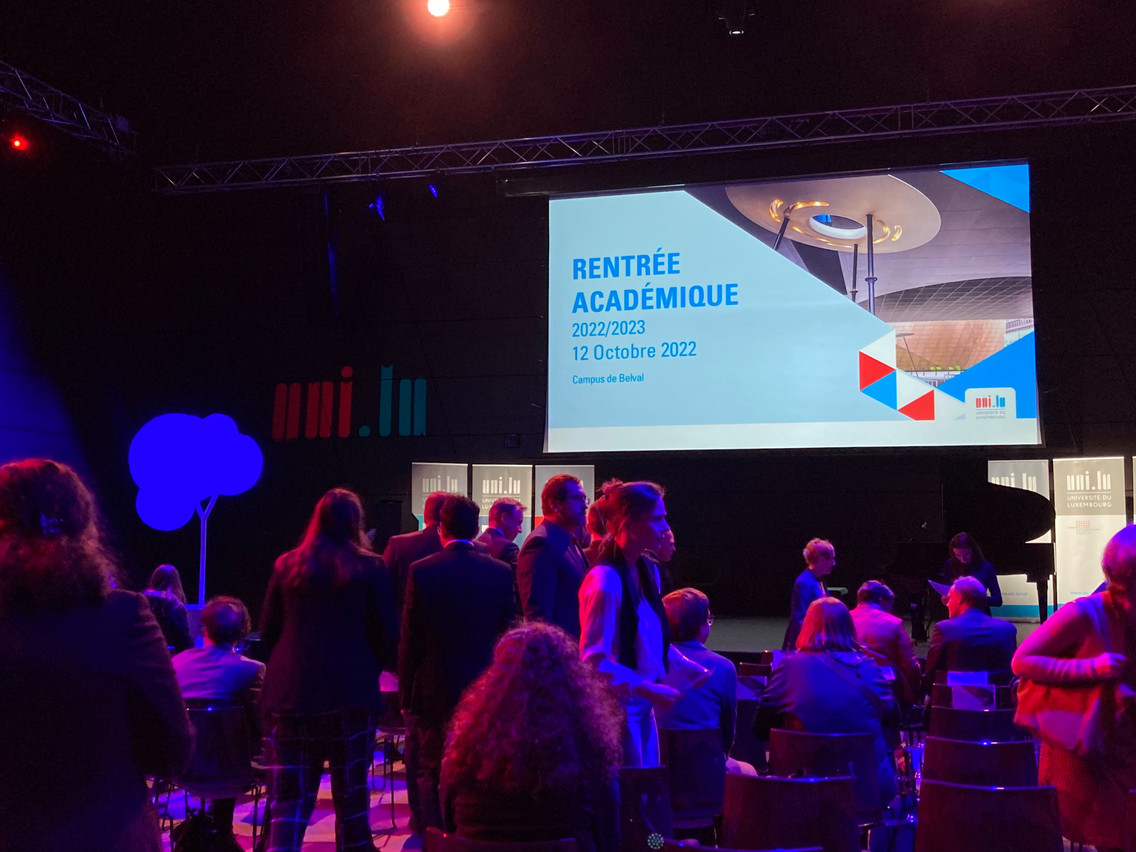“October 2022 is very different from October 2021 and October 2020… We have learned to live with a virus that has killed 6.5 million people around the world,” began, addressing an auditorium filled with a mix of students, professors, and other members of the university community.
In his opening remarks, Pallage used the example of how experts in Luxembourg responded to the pandemic to illustrate the importance of research. The national task force coordinated by the university and the Luxembourg Institute of Health, in collaboration with other public research centres, brought together experts from sectors such as health, mathematics, economics, and logistics to help decision-makers navigate unknown territory. The importance of this multidisciplinary expertise during the covid crisis was highlighted in a .

Professor Stéphane Pallage, rector of the University of Luxembourg, delivered the opening remarks at an event marking the start of the 2022-2023 academic year. Sophie Margue
Health and medicine a priority for the university
With regards to future plans, Pallage explained that the university has three main “axes,” or priorities, for the coming decade: health and medicine; the digital transformation; and sustainability.
Three specialised programmes for students with a master’s in medicine--in general medicine, medical oncology and neurology--were launched in 2021. In addition, the 2022-2023 academic year is already seeing more medical studies at the university. “The third year of the bachelor’s in medicine was inaugurated in September, which means that we will soon have our first graduates,” said Pallage.
Read also
Both Pallage and Luxembourg’s minister for higher education and research mentioned four new curricula for specialised nursing science that will be put in place starting in September 2023. The following year, three additional bachelor’s programmes will be added, allowing students to become midwives, technical medical assistants in radiology, or nurses responsible for general care. With these new programmes, along with the introduction of a doctoral degree in medicine, Meisch said that Luxembourg takes on “a bigger responsibility to guarantee that a growing number of doctors will be trained in the country.” This will also promote a “qualitative and efficient health system.”
Furthermore, there will be also be new master’s programmes in strategic domains: high-performance computing and cybersecurity, supporting the second axis. On the future of another of the university’s priorities--sustainability--Pallage announced that a new interdisciplinary research centre focused on this challenge would see the light in the coming years. “A worldwide idea competition will soon be launched to identify the future leader of this new centre,” he added.

Minister Meisch spoke about plans concerning university studies related to health and education. Sophie Margue
“Universities are places of peace and liberty”
But it’s not just a pandemic that has changed our lives, Pallage pointed out. War now rages on the European continent, and “by defending its integrity, Ukraine also defends our freedom.” The university, which has opened its doors to displaced academics from Ukraine, has welcomed more than 120 individuals. The university is also hosting data from Ukrainian universities fearing the destruction of their servers, thus preserving the “digital memory of Ukrainian research.”
“Universities are places of peace and liberty,” Pallage declared. “They are places in which inclusion has centre stage. Our community has been active in the support of human rights wherever they are threatened,” he added, offering his support and solidarity for violently repressed demonstrators, and especially women in Iran.
Internationally renowned university with high-quality research
The university of Luxembourg, which was founded in 2003, is remarkable for its international character. The Times Higher Education World University Rankings 2022 worldwide for its international outlook. It counts approximately 7,000 students of 135 nationalities.
“One of the keys, if not the key, to the success of Luxembourg, whether in research or teaching, is the quality,” declared Meisch, which is why optimising quality assurance is one of the ministry’s priorities. A new law, which will replace the law on higher eduction from 2009, will introduce a clear definition of the system of higher education in Luxembourg.
One of the keys, if not the key, to the success of Luxembourg, whether in research or teaching, is the quality.
Pallage and Meisch both referred to Luxembourg’s high ranking in their speeches-- (out of 539) on the list of young universities. Notable was its increased score in terms of research. The university has over 1,000 ongoing research projects and produced 2,238 publications in 2021.
“All of the success of the University of Luxembourg previously mentioned are certainly the fruits of the work of many people,” said Meisch, but adds that Pallage was without doubt largely responsible for this success. The rector, who calmly took over in a time of turbulence, led the university’s development in the domains of both research and teaching, and made the university more pre-eminent at the international level.

Pallage suggested visiting the university’s new learning centre, designed by the Luxembourgish architect François Valentiny. The building blends elements of the region’s industrial past with modern forms. Lydia Linna
A thriving, attractive, successful institution
Teaching and student initiative awards were also presented to several professors and research scientists from the various faculties and to students. Remarks accompanying the awards laid heavy emphasis on the quality of teaching, professors’ willingness and dedication to helping students succeed, and demonstrated the benefits of education at Luxembourg’s university.
Moreover, Pallage noted that some 50% of students stay in Luxembourg after graduation. Hired by industry, banks, and other companies, they in turn contribute to the economy of the grand duchy.
A lecture from Professor John Scheid on the pertinence of fundamental research, as well as musical interludes by pianist Nicolas Leydenbach, a student in the bachelor’s in music education at the university, complemented the programme.
Pallage finished his remarks by saying: “The performance of our professors and researchers in the local and international spheres makes a lot of rectors jealous. The truth is we have a wonderful team that was capable of fulfilling all the missions of the university--and more--throughout the worst sanitary crisis the world has known in 100 years. The team of researchers and staff is a true gem of this university and this country.”
The team of researchers and staff is a true gem of this university and this country.
The rector, who will be at the end of the year and will be , insists that his speech is not a goodbye. The start of another school year is a reason for celebration, and there is plenty planned for the autumn.


